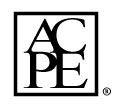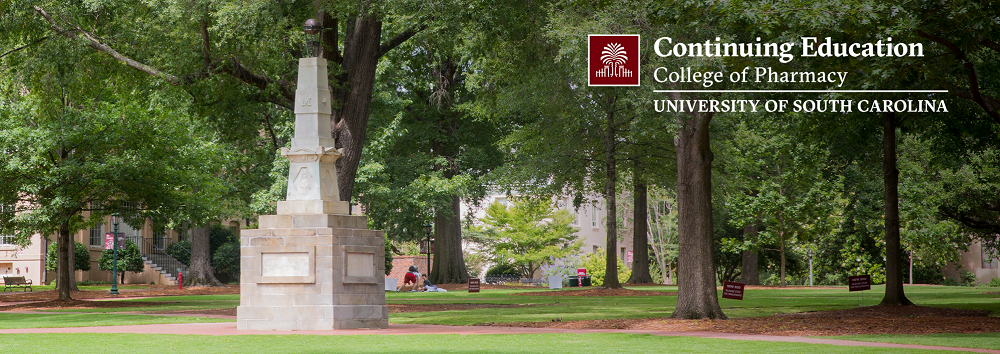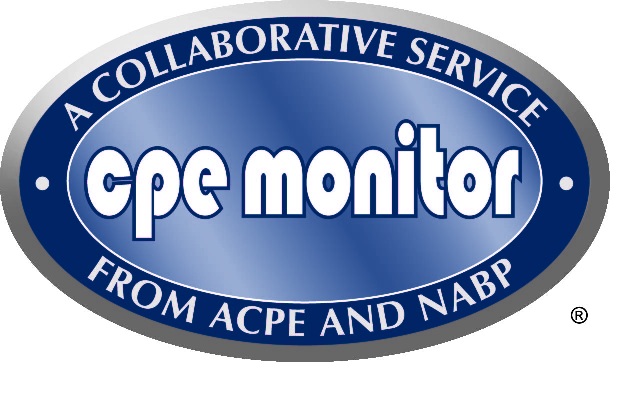South Carolina College of Pharmacy
Fall Symposium 2017
November 4, 2017 · 715 Sumter Street, Coker Life Sciences Room 215, Columbia, SC 29208
Target Audience: Pharmacists and Technicians
Agenda:
7:45am-8:15am Registration/Check-In and Welcome
8:15am-9:15am The Opioid Epidemic: What's a Pharmacist Supposed to Do? (1.0 hrs.) ACPE# 0062-0000-17-168-L03-P/T
Gene Reeder, PhD, Professor and Director of Outcomes Research at the Kennedy Pharmacy Innovation Center, USC
At the completion of this activity, the pharmacist and pharmacy technician will be able to:
- Describe the scope of the opioid abuse problem in the US
- Identify red flag indicators that can help detect illegitimate opioid prescriptions
- Recall the attributes of a valid patient-physician relationship
- Define the legal concept of “corresponding responsibility” and how it relates to dispensing a controlled substance prescription
- Identify five management strategies to reduce the risk of liability for dispensing controlled substance
- Discuss a case involving controlled substances and a patient overdose
9:15am-10:45am Immunization Update 2017 (1.5 hrs.) ACPE# 0062-0000-17-167-L06-P/T
Betsy Blake, PharmD, BCPS, Clinical Associate Professor and Director of Interprofessional Education, USC
At the completion of this activity, the pharmacist will be able to:
- Describe best practices for pharmacy-based immunization delivery
- Describe key components of the updated SC Pharmacy Practice Act regarding immunizations
- Review the 2017 Advisory Committee on Immunization Practices (ACIP) recommendations regarding adult and pediatric immunizations and discuss changes in the schedules
- Discuss available influenza vaccine products for the 2017-2018 season
- Evaluate specific patients’ immunization histories to determine appropriate vaccine recommendations
At the completion of this activity, the pharmacy technician will be able to:
- Describe best practices for pharmacy-based immunization delivery
- Identify opportunities to improve vaccination rates
- Describe the role of the pharmacy technician in improving the efficiency of immunization delivery
10:45am-11:00am Break
11:00am-12:30pm Updates in the Treatment of Heart Failure (1.5 hrs.) ACPE# 0062-0000-17-169-L01-P/T
Brie Dunn, PharmD Associate Dean for Outcomes Assessment and Accreditation and Clinical Associate Professor, USC
At the completion of this activity, the pharmacist will be able to:
- Discuss the advantages and disadvantages of newly approved treatments for heart failure.
- Given a patient scenario, develop an evidence-based treatment regimen for heart failure based on updated
- List general approaches to preventing drug-induced exacerbation of heart failure.
- Describe potential options and strategies available to improve medication adherence and optimize transitions of care
At the completion of this activity, the pharmacy technician will be able to:
- Discuss the advantages and disadvantages of newly approved treatments for heart failure.
- Review important safety considerations with the new agents.
- Describe potential options and strategies available to improve medication adherence and optimize transitions of care.
12:30pm-1:30pm Lunch (provided)
1:30pm-3:30pm A Patient-Centered Approach to Self-Care (2 hour) ACPE# 0062-0000-17-170-L01-P/T
Patricia Fabel, Pharm D,BCPS, Clinical Associate Professor and the Executive Director of the Kennedy Pharmacy Innovation Center, USC
At the completion of this activity, the pharmacist will be able to:
- Recognize symptoms and conditions that might be treated with nonprescription medications.
- Recall active ingredients, doses, directions, adverse events, precautions and contraindications of available OTC products.
- Differentiate situations in which non-pharmacologic treatments, a nonprescription recommendation, and/or a physician referral would be appropriate.
- Utilize the Pharmacists’ Patient Care Process to create a comprehensive self-care treatment recommendation.
- Justify self-care treatment recommendations using patient-specific information, drug information facts, and evidence-based medicine.
At the completion of this activity, the pharmacy technician will be able to:
- Recognize symptoms and conditions that might be treated with nonprescription medications.
- Recall active ingredients, doses, and directions of available OTC products.
- Identify situations in which non-pharmacologic treatments would be appropriate.
- Identify components of the Pharmacists' Patient Care Process where a technician can assist a pharmacist in designing and implementing a self-care treatment recommendation
- Discuss the evidence behind certain self-care recommendations.
Registration Information
- Early registration required to receive discounted rate of $110 for pharmacists and $79 for technicians (includes continental breakfast and box lunch)
- We encourage you to register on line at http://SCCP.learningexpressce.com
- Registrations will increase by $10 after October 27, 2017 to $120 for pharmacists and $89 for technicians.
- You may call or email for more information: (803) 777-9979 or email ce@cop.sc.edu
 The South Carolina College of Pharmacy is accredited by the Accreditation Council for Pharmacy Education as a provider of continuing pharmacy education. This program has been accredited for 6.0 live contact hours (0.6 CEUs) for pharmacists and pharmacy technicians, including 1 hour of law. Participants must sign in and attend all sessions for maximum credit. Participants must complete an on-line evaluation within 30 days to facilitate transmission to the CPE Monitor. Failure to provide correct and/or complete information may result in your activity not being reported to the CPE Monitor. ACPE now requires that all credit be claimed and reported within 60 days after the live event. This is a knowledge based learning activity.
The South Carolina College of Pharmacy is accredited by the Accreditation Council for Pharmacy Education as a provider of continuing pharmacy education. This program has been accredited for 6.0 live contact hours (0.6 CEUs) for pharmacists and pharmacy technicians, including 1 hour of law. Participants must sign in and attend all sessions for maximum credit. Participants must complete an on-line evaluation within 30 days to facilitate transmission to the CPE Monitor. Failure to provide correct and/or complete information may result in your activity not being reported to the CPE Monitor. ACPE now requires that all credit be claimed and reported within 60 days after the live event. This is a knowledge based learning activity.SCCP reserves the right to cancel the entire program. In the event of a cancellation, each participant will be notified via email prior to the program and a full tuition refund will be made.
______________________________________________________________________
Cancellation Policy: All refunds should be requested in writing on or before October 27, 2017 and will be subject to a $6 administrative fee. No cancellation requests will be accepted after October 27, 2017.
Please note fees will show as "Learning Express" on credit card statement.
Date: Nov 4, 2017 08:15 AM - 03:30 PM
CE Hours
6.00
CE Units
0.600
Registration closes on Nov 02, 2017 04:00 PM
Activity Type
- Knowledge
Target Audience(s)
- Pharmacists
Accreditation(s)

|
The University of South Carolina College of Pharmacy is accredited by the Accreditation Council for Pharmacy Education as a provider of continuing pharmacy education.
|
Requirements for CE Credit
Participants must check in with the front desk upon arrival and have attendance verified.
To claim credit for this activity, participants must complete an online program evaluation and must update their accounts to properly reflect their month and day of birth and their correct NABP E-Id. Registration with a proper disclosure of your NABP E-Id is a requirement for receiving Continuing Pharmacy Education. To register with or look up your NABP E-Id, please click on the CPE Monitor logo below to be directed to their site. Failure to follow this process within the required timeframe will result in loss of credit. If you would like a paper statement of credit, you may print an individual statement or a transcript from your NABP e-profile.
Registration closes on Nov 02, 2017
at 04:00 PM
Registration closes on Nov 02, 2017
at 04:00 PM
Registration Closed
Registration Closed
At the completion of this activity, the participant will be able to:
- Describe the scope of the opioid abuse problem in the US
- Identify red flag indicators that can help detect illegitimate opioid prescriptions
- Recall the attributes of a valid patient-physician relationship
- Define the legal concept of "corresponding responsibility" and how it relates to dispensing a controlled substance prescription
- Identify five management strategies to reduce the risk of liability for dispensing controlled substance prescriptions
- Discuss a case involving controlled substances and a patient overdose
Activity Number
0062-0000-17-168-L03-P
Date:
11/04/17
Time:
08:15 AM - 09:15 AM
CE Hours
1.00
Registration Closed
Registration Closed
Registration Closed
At the completion of this activity, the participant will be able to:
- Describe best practices for pharmacy-based immunization delivery
- Describe key components of the updated SC Pharmacy Practice Act regarding immunizations
- Review the 2017 Advisory Committee on Immunization Practices (ACIP) recommendations regarding adult and pediatric immunizations and discuss changes in the schedules
- Discuss available influenza vaccine products for the 2017-2018 season
- Evaluate specific patients' immunization histories to determine appropriate vaccine recommendations
Activity Number
0062-0000-17-167-L06-P
Date:
11/04/17
Time:
09:15 AM - 10:45 AM
CE Hours
1.50
Registration Closed
Registration Closed
Registration Closed
At the completion of this activity, the participant will be able to:
1. Discuss the advantages and disadvantages of newly approved treatments for heart failure.
2. Given a patient scenario, develop an evidence-based treatment regimen for heart failure based on updated
guidelines.
3. List general approaches to preventing drug-induced exacerbation of heart failure.
4. Describe potential options and strategies available to improve medication adherence and optimize transitions
of care.
1. Discuss the advantages and disadvantages of newly approved treatments for heart failure.
2. Given a patient scenario, develop an evidence-based treatment regimen for heart failure based on updated
guidelines.
3. List general approaches to preventing drug-induced exacerbation of heart failure.
4. Describe potential options and strategies available to improve medication adherence and optimize transitions
of care.
Activity Number
0062-0000-17-169-L01-P
Date:
11/04/17
Time:
11:00 AM - 12:30 PM
CE Hours
1.50
Registration Closed
Registration Closed
Registration Closed
At the completion of this activity, the participant will be able to:
- Recognize symptoms and conditions that might be treated with nonprescription medications.
- Recall active ingredients, doses, directions, adverse events, precautions and contraindications of available OTC products.
- Differentiate situations in which non-pharmacologic treatments, a nonprescription recommendation, and/or a physician referral would be appropriate.
- Utilize the Pharmacists' Patient Care Process to create a comprehensive self-care treatment recommendation.
- Justify self-care treatment recommendations using patient-specific information, drug information facts, and evidence-based medicine.
Activity Number
0062-0000-17-170-L01-P
Date:
11/04/17
Time:
01:30 PM - 03:30 PM
CE Hours
2.00
Registration Closed

